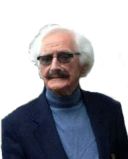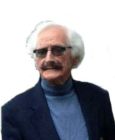Persuasion
On Meeting Carl Gustav Jung
Jung needed mere minutes to influence those around him.
Posted February 8, 2012
It was at the first Eranos meeting after World War II that I met Carl Gustav Jung (now, so many years later, I cannot recall whether the Conference was held in Basel or Locarno). I had accompanied Herbert Read (later to become Sir Herbert), philosopher, famous writer on the arts, and World War I poet, to this international meeting of psychiatrists and doctors and it was he who introduced me to Jung. Memory has it that this was in 1950 when Jung would have been about 75.
It was a fairly brief conversation – four or five minutes at most – yet I found that simply being in the great man's presence was impressive enough. He was tall and solidly built; ‘commanding the stage', as they say. On introduction his gaze was direct and penetrating, quizzical but not aggressively so: contemplative and, it seemed, expecting one to speak first. There was a certain intensity to this momentary silent communion that made conversation seem hardly necessary. I found myself ‘becalmed', as it were: strangely relaxed. When the words came they did so of their own volition; not serving to impress but quite unselfconsciously, ‘from the heart' as it were.
At that time I was making drawings of ‘personalities' for the BBC – quick sketches intended to convey one's first impressions of the subject: drawings which on some occasions were to become the basis for full-scale portraits. I told Jung how usually it was necessary to make many such ‘snapshot-like' images in order to discover the one that best conveyed the subject's essential character. He commented on the similarity of our jobs (!) – saying that we both had to go beyond the surface of appearances and discover something of a subject's essential character. And I remember him saying that Rembrandt was as much a great psychologist as he was a master painter.
Even during such a brief encounter with Jung I felt myself to be psychologically ‘quietened' – clear-headed as it were, free of the constant buzz of ‘background noise' ... of the run of thoughts normally attempting to shape one's attitude towards a new personal encounter. It seemed that my mind during those first moments became almost a tabula rasa: a ‘clean slate' ... all the better to record and comprehend the value of a truly significant event in one's life.
I experienced a similar state when talking to Father Trevor Huddleston C.R., whose book Naught for your Comfort, condemning apartheid in South Africa, was being widely read. He was a priest in whose presence one could literally ‘feel' the intensity of a spiritual force. It was not possible to dissemble in any way when in his company: no pretensions, no self-serving surges of ego, no embellishing of facts. It was like being psychologically stripped bare – capable only of speaking whatever truths resided at one's core. It was a similar kind of psychological phenomenon that occurred during my five minute conversation with Carl Jung.
Shortly after my visit, Jung appeared on an hour-long BBC television program called Face to Face. He was interviewed by a Labour Member of Parliament called John Freeman (who later became the Governor General of Australia for services rendered to British politics.) Freeman was a tough interviewer. Well-informed and rational to a fault, Freeman was an aggressive interviewer pushing Jung hard to explain and rationally support his belief in a multi-layered human psyche. Patiently, Jung – who together with Sigmund Freud pioneered the innovative medical art of psychiatry in the first years of the 20th Century – explained how the objective and subjective aspects of consciousness worked together. How the senses, supported by intellect and the powers of reason introduced the existential ‘realities' of the outside world ... while the intuition, supported by the powers of imagination and the unconscious, brought an inner realm of awareness into play; one which largely introduced a highly individual self awareness and attitude to our very existence.
Such, Jung explained, constituted the dual nature of consciousness, and was responsible for the process of individuation which took each one of us on our own solitary path through life for good or ill.
Gradually, the viewer noticed, Freeman was doing more listening than talking. His demeanor had changed. He was nodding his head from time to time, obviously impressed by Jung's discussion of these mental attributes possessed by the human psyche. The last question he shot at Jung was: "Well, Dr. Jung, do you believe in God?" Jung paused for a moment, and then said: "No, Mr. Freeman. I don't believe. I know.'' It took but an hour for this distinguished politician to both feel and know the credibility of Jung's position as both doctor and mental healer. He became a close friend, visiting Jung in Basel, and was responsible for persuading him to write a popular book for the layman entitled Man and His Symbols. In my book, What the Hell Are the Neurons Up To?,
I write extensively about the relationship between Freud and Jung and their divergent beliefs and psychiatric practices: and about Bruno Bettelheim's revelatory book, Freud and Man's Soul.
And a photograph of Jung stares at me from my desk as I write.


